Saudi Arabia Could Invest In Iran 'Very Quickly' - Minister
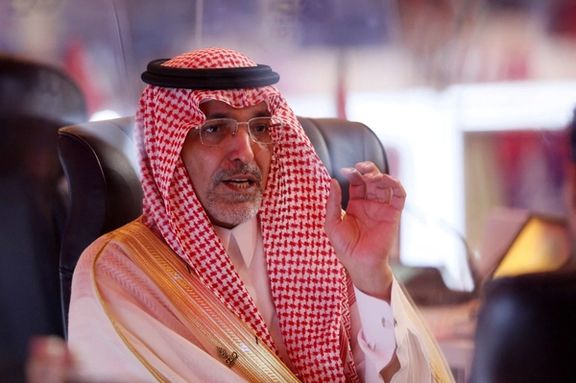
Saudi Arabia's Finance Minister Mohammed Al-Jadaan said Wednesday that Saudi investments into Iran could happen "very quickly" following an agreement to restore diplomatic ties.

Saudi Arabia's Finance Minister Mohammed Al-Jadaan said Wednesday that Saudi investments into Iran could happen "very quickly" following an agreement to restore diplomatic ties.
"There are a lot of opportunities for Saudi investments in Iran. We don't see impediments as long as the terms of any agreement would be respected," Al-Jadaan said during the Financial Sector Conference in Riyadh.
Iran and Saudi Arabia agreed Friday to re-establish diplomatic relations after years of hostility that had threatened stability and security in the Gulf and helped fuel conflicts in the Middle East from Yemen to Syria.
"Stability in the region is very important, for the world and for the countries in the region, and we have always said that Iran is our neighbor and we have no interest to have a conflict with our neighbors, if they are willing to cooperate," Al-Jadaan later told Reuters in an interview.
Tehran and Riyadh agreed to re-open embassies within two months, according to a statement issued by Iran, Saudi Arabia and China, which brokered the deal.
"We have no reason not to invest in Iran, and we have no reason not to allow them to invest in Saudi Arabia. It is in our interest to make sure that both nations benefit from each others resources and competitive advantage," Al-Jadaan told Reuters.
"If they (Iran) are willing to go through this process, then we are more than willing to go through this process and show them they are welcome and we would be more than happy to participate in their development," he said.
He said there were a lot of opportunities in Iran and that Saudi Arabia also provided a lot of opportunities for Iran.
Report by Reuters
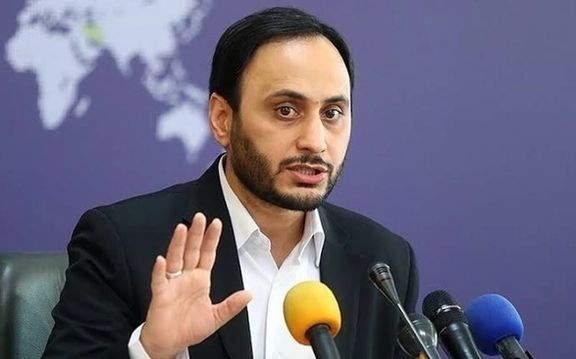
Renewing ties with Saudi Arabia corrects a "strategic mistake" in Tehran's foreign policy after seven years of tense relations.
Ali Bahadori Jahromi made the remarks at a press conference on Tuesday claiming “the regional and global issues are not only solved through the West, and there was a strategic mistake in the past in this regard.”
The government spokesman’s comments come after a historic deal was brokered by China between Iran and Saudi Arabia this month after years of tension blighted relations between the two arch-rivals.
Saudi Arabia severed ties with the Islamic Republic in January 2016 after pro-government Iranian mobs attacked and ransacked its embassy in Tehran and consulate in Mashhad following the execution of a Saudi Shiite cleric.
The hardliners including many of Raisi administration officials, who now boast of the deal with Riyadh as a great victory, are the same ones who supported the attack on the Saudi embassy seven years ago.
One day after vigilante groups attacked Saudi diplomatic buildings in Iran, Ebrahim Raisi said "Iran does not need relations with Saudi Arabia." Raisi, who was then Iran's Public Prosecutor, accused Saudi Arabia of harboring and "feeding" Salafists, and characterized it as "a cancerous tumor in the region."
The two countries will reopen their embassies within two months amidst ongoing negotiations. It is unclear what the conditions are but Saudi has stated Iran must abide by its terms.
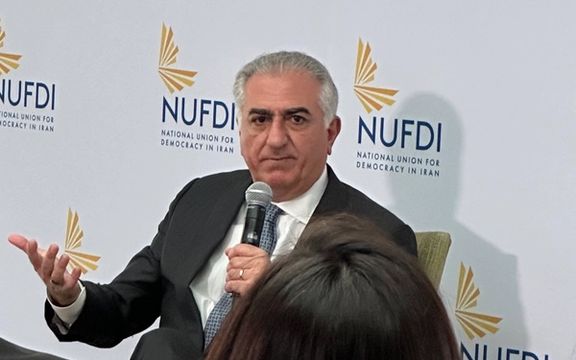
Iran’s exiled Prince Reza Pahlavi addressed lobbyists in the US this week calling for bipartisan support in the US and Europe to achieve a secular Iran.
Speaking at an event held by the National Union for Democracy in Iran (NUFDI) trying to engage “maximum support” for the anti-regime protests in Iran, he criticized current US foreign policy.
All measures, he said, including sanctions, taken to contain the Islamic regime in Iran “is based on a false premise and expectation which was behavior change.”
“Expecting them to change their behavior is such a waste of time,” he added.
Pahlavi reiterated that talks and deals with the Islamic Republic are fruitless because “this regime has proven that its DNA, its reason to exist has nothing to do with the national interests of the country and its people; they’re there only to export their ideology at the expense of the Iranian people.” “For them to succeed, the rest of the world has to fail,” he said, explaining the mentality of the regime.
“It’s zero-sum; they [Iran] cannot have an actual coexistence with a world that is democratic and where human rights are the basis of laws and rules,” he said. He echoed the NUFDI’s call for the annulment of any talks to revive the 2015 nuclear deal with the regime, saying that the world assumes that the deal – known as the JCPOA – would work as a safety catch but a cheating regime can uncheck the safety mechanism if it wants to pull the trigger.
The NUFDI unveiled a 15-point document consisting of action plans and strategic tools for the provision of maximum support as a complement to the US policy of “maximum pressure”, which holds the promise of creating a more complete framework for US-Iran policy.
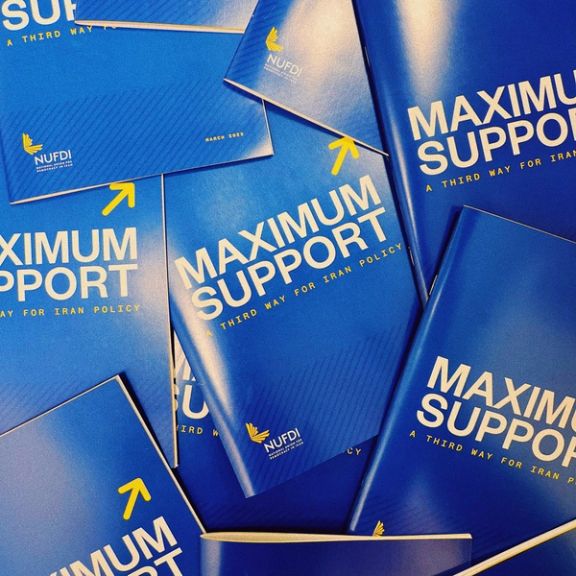
It calls for a mechanism to hold the Islamic Republic accountable through economic and diplomatic isolation, which also engages, elevates and empowers the Iranian people through the provision of much-needed moral, logistical and financial support. The two strategies work hand-in hand as the pressure on the Islamic Republic weakens the regime in the face of a growing democratic movement and strengthens the Iranian people relative to their oppressors.
In the opening speech of the event, NUFDI Policy Director Cameron Khansarinia said, “We believe that maximum pressure on the Islamic Republic is necessary; holding the regime accountable for crimes against the Iranian people is not only a movement for freedom, it’s absolutely necessary. Pressure on the Islamic Republic is a form of support of the Iranian people because it comparably weakens the regime and maximum support for the Iranian people is a form of pressure on the regime because it empowers, emboldens, and strengthens the people vis-a-vis the Islamic Republic.”
“First the US must announce a strategic policy shift in its Iran policy,” he said, adding that “the president should publicly address the American people in support of the Iranian people’s movement for a secular democracy.” “Maximum support begins with a formal strategic realignment of US policy and the president coming out formally in support of the Iranian people's right to determine their future and right to a secular democracy” he noted.
Several pundits from different think tanks, such as the Middle East Institute, American Progress and Carnegie Endowment for International Peace, as well as Member of Canada’s House of Commons Ali Ehsassi and Member of the Belgian Parliament Darya Safai were among the other participants of the event.
A popular voice for the revolutionary movement, Pahlavi said that it is futile to negotiate with the regime because only eradicating the regime can lead to true change. “Secular opposition has the answers,” he said, calling such an action “a controlled implosion” of the regime and not the “anarchy,” which many believe is making the Western powers hesitant to put more weight behind the protesters.
Pahlavi said that “the regime change is not a bad concept” only because it was mishandled somewhere else such as Iraq, emphasizing that it is futile to negotiate with the regime about the solutions for the country “because they’re part of the problem, and the secular opposition has the answers.”
Pahlavi noted that one of the most important mechanisms for the transition to a democratic Iran is using Tehran’s frozen funds in foreign countries to support strikes by workers in the oil, gas and transportation sectors.
He said one of the most significant elements that put pressure on the previous regime leading to the 1979 revolution, through which his father was overthrown, was financial support for the striking workers of the oil industry.
He underlined that the amount of money needed to support the striking workers is way lower than the funds blocked in other countries due to the US sanctions, saying that supporting workers, who would normally earn around $300 per month, for a few months would offer a manageable solution.
He called for bipartisan support in the US – and in other European countries for that matter, saying that politicians from across the spectrum should support a secular Iran and engage in dialogue with the united front of democratic opposition. "We should take a book out of the experiences that the Israelis have had,” he said, adding that “when it comes to Israel, we expect bipartisan support” from the US regardless of party affiliation. “We don’t expect anything short of bipartisan support when it comes to Iran and our freedom and human rights.”
He described supporting the protesters in Iran as a win-win situation for the world, especially the European countries. He said the immediate tangible benefits would be supplying the energy needs of Europe through Iran’s gas reserves and the stop of the flow of immigrants fleeing from the conflicts in the region to Europe, which is saturated by the number of migrants.
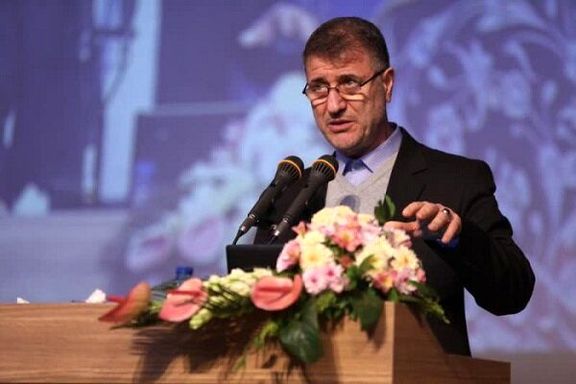
A high-ranking official of Iran's Ministry of Science says Europeans have restricted their academic ties with the Islamic Republic.
Germany has also closed the office of the German Academic Exchange Service (DAAD) in the country.
Vahid Haddadi-Asl, the deputy minister in international affairs told state-run ISNA news agency that the European countries are not interested in academic collaboration with Iran.
"We have no limits on scientific cooperation with the countries of the world except with the Zionist regime, but the Europeans restricted their ties and Germany closed the office of the German Academic Exchange Service (DAAD) in Iran,” he said, DAAD academic, and should not be politicized.
However, in his statements, Haddadi did not mention the extensive pressure on students and declined to explain why a number of Iranian or foreign academic figures are arrested in Iran on the charge of espionage.
Students have been under pressure for years, and in recent protests following the death of Mahsa Amini in September a large number of them were detained and beaten up by security agents, even inside campuses.
However, Haddadi claimed the Islamic Republic had "good academic activities" in the neighboring countries, and "some good agreements were signed with them” namely Iraq, Pakistan, Tajikistan, and Uzbekis
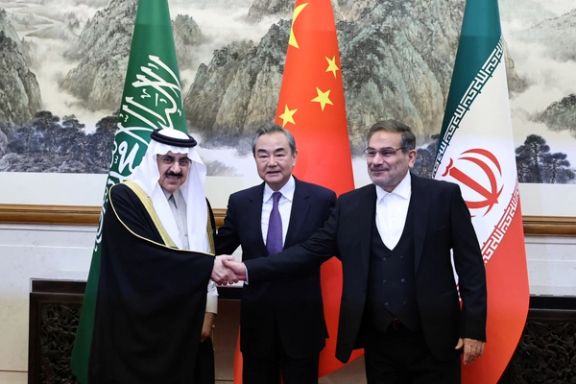
China, Russia and Iran have started maritime drills in the Gulf of Oman, less than a week after Tehran and Riyadh agreed to restore ties with Chinese mediation.
China’s defense ministry announced Wednesday that the drills will last from March 15-19 and “deepen practical cooperation among the navies of participating countries.”
Although it is not the first time the three countries hold joint naval drills in the Gulf of Oman and the Indian Ocean, the announcement coming on the heals of the Saudi-Iranian rapprochement might be a signal by Beijing about its intentions to expand influence in the region.
The drills also coincide with reports that China intends to hold a summit of Arab countries and Iran later this year. The Wall Street Journal quoted diplomatic sources that when Chinese President Xi Jinping visited Saudi Arabia for a regional summit with Persian Gulf Arab states in December, he proposed a high-level gathering of the Gulf Cooperation Council members and Iran in Beijing in 2023.
Most analysts agree that restoration of diplomatic ties between Iran and Saudi Arabia does not mean an overnight resolution to serious differences in their complicated relations. US officials have been quoted as being skeptical about Tehran delivering on what it has promised Riyadh, which is probably pursuing limited goals of reducing tensions rather than forging close relations with Tehran.
But most interestingly, Reuters briefly quoted the Saudi finance minister Wednesday as saying that there are a lot of opportunities for investments in Iran and he does not see an impediment as long as terms of agreements are respected by Tehran.
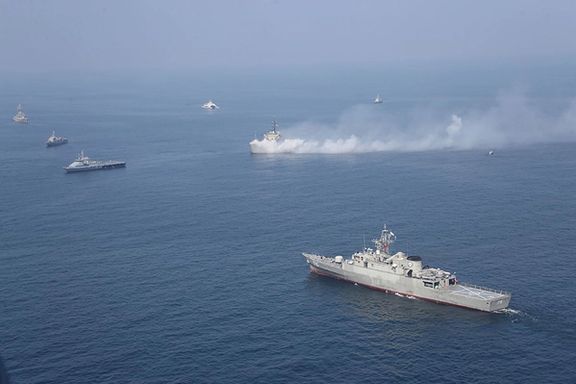
This is going much farther than a cordial resumption of diplomatic ties, and it would mean that the Saudis are willing to throw a lifeline to the beleaguered clerical rulers in Tehran who face a bankrupted economy.
Any Saudi economic dealing with Iran would also directly undercut US sanctions imposed to pressure Tehran, if not violating them outright. But dangling the prospect of foreign investment that Iran has no chance of securing in the current situation, might be a powerful tool.
There have been speculations that Beijing might try to solve the issue of Iran’s nuclear program that has extremely worried the Saudis, and eluded the Americans. In such a scenario, when tens of billion of dollars in Iranian assets are blocked worldwide, the prospect of Saudi investments could be a powerful lever to cajole Tehran to agree to a Chinese brokered agreement limiting its nuclear program.
Nevertheless, at this juncture, a regional rapprochement seems to be moving ahead fast. Nour News, a website in Tehran close to the national security council reported Wednesday that Iran's Supreme National Security Council secretary Ali Shamkhani will visit the United Arab Emirates on Thursday.
"Shamkhani will travel to Abu Dhabi on Thursday in response to an official invitation by his Emirati counterpart Sheikh Tahnoun bin Zayed Al Nahyan to discuss bilateral, regional, and international issues," Nour News said.
"Top economic, banking and security officials will accompany the Supreme National Security Council secretary to the UAE," it added.
Improvement of not only diplomatic but economic relations between GCC members and Iran could be a signal that plans to expand and strengthen the Abraham Accords between Israel, the United States and Arab countries will take the back seat.
This would also be a serious blow to US ‘maximum pressure’ strategy against Iran to push it toward a nuclear agreement that would perhaps include other provisions to limit Iran’s damaging activities in the region. If Saudis can tame Tehran with their own methods, the US role will be diminished as a security guarantor for the Kingdom.

Abolqasem Delfi, a former Iranian ambassador to France, says the deal to restore ties with Saudi Arabia marks the return of Iran's foreign policy to rationality.
However, Delfi pointed out in an interview with Rouydad24 news website in Tehran on Monday, that the agreement with Riyadh to restore diplomatic ties cannot substitute Iran's nuclear agreement with world powers (JCPOA). But he added that the agreement may signal other upcoming breakthroughs in Iran's foreign relations.
Meanwhile, Iranian diplomat Kourosh Ahmadi said in an interview with Etemad Online that Europe and the United States probably welcome the breakthrough because it makes it less likely for Iran to disrupt the flow of oil from the Persian Gulf in case of an Israeli attack on its nuclear installations.
He added that the agreement between Tehran and Riyadh will lead to a reduction in urgency for the US to supply arms to Persian Gulf Arab states as they would be now less concerned about possible threats from Iran.
In another development, Iranian official news agency IRNA quoted former US official and a current senior director at Rafik Hariri Center and Middle East Programs at the Atlantic Council William Wechsler as saying that it will be no surprise if the next news about Iran turns out to be the revival of the nuclear agreement (JCPOA) based on a deal brokered with China.
In yet another development Monday, the IRGC's Javan newspaper in Tehran wrote: "The agreement with Saudi Arabia might pave the way for resolving the deadlock over the revival of the Joint Comprehensive Plan of Action (JCPOA)."
Javan argued that the agreement with Riyadh to some extent meets the US demand about considering the interests of Washington's Arab allies in a deal with Tehran. Javan claimed the Saudi agreement came at a time when efforts have been redoubled to return the United States to the negotiating table with Iran.
Despite Javan's optimism, the Biden administration continues to insist that restoring the JCPOA is no longer a priority. It should be noted that Iranian media increasingly reflect a sense of frustration on the part of hardliners who now seem eager to resume talks with Washington.
The daily further opined that the deal with Saudi Arabi will reassure the United States that Iran will not destabilize the Persian Gulf region. The article in Javan went as far as saying that Riyadh may also encourage the West to make an agreement with Iran.
Centrist daily Ham Mihan was so upbeat about the agreement with Riyadh that suggested now that Iran has come to terms with Saudi Arabia, perhaps it is also time for Tehran to take constructive decisions about the JCPOA, joining the FATF and changing its positions about Russia's war in Ukraine.
Ham Mihan wrote that this will also help solve Iran's domestic problems as without tackling international problems, it would be difficult to address the economic crisis and social problems in Iran.